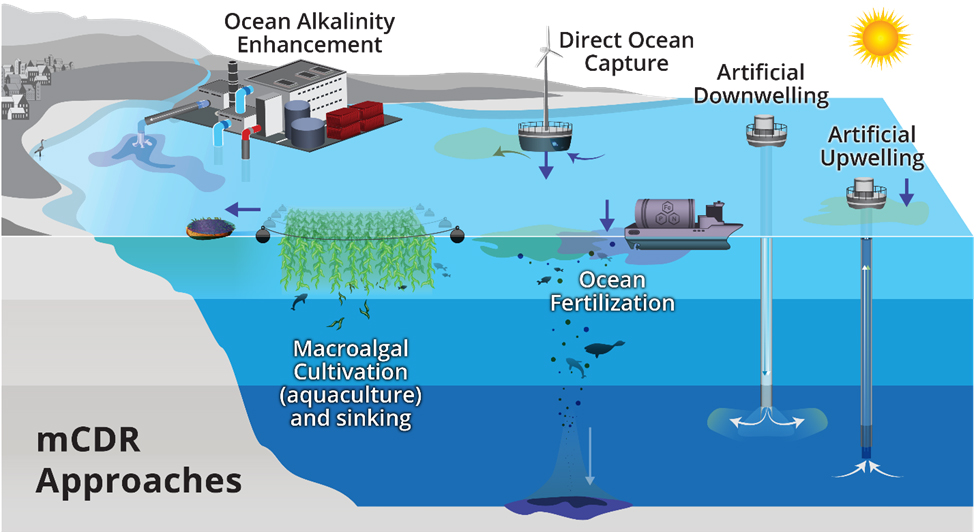The Biden-Harris Administration, alongside the National Oceanic and Atmospheric Administration (NOAA), has unveiled the National Marine Carbon Dioxide Removal Research Strategy, aimed at advancing safe and effective research on marine carbon dioxide removal (mCDR) and assessing its potential as a viable climate solution. This strategy sets out a framework for the US government to accelerate mCDR research, addressing the benefits, risks, and trade-offs associated with emerging carbon removal techniques.
Marine carbon dioxide removal refers to methods that enhance the ocean’s capacity to absorb and store atmospheric CO₂. The Intergovernmental Panel on Climate Change (IPCC) views carbon dioxide removal, combined with significant emissions reductions over the next two decades, as crucial to mitigating severe climate impacts. While the strategy does not replace the need for urgent greenhouse gas reductions, it highlights mCDR as a potential supplementary tool in climate mitigation efforts.
NOAA, in partnership with the White House Office of Science and Technology Policy, co-led the strategy’s development. The approach encompasses both biological and non-biological mCDR techniques, with comprehensive details available in NOAA’s Carbon Dioxide Removal Research Strategy, published in May 2023. The strategy emphasises the importance of interdisciplinary research to evaluate the effectiveness of mCDR, its ecological impacts, environmental justice considerations, and measurement approaches.
